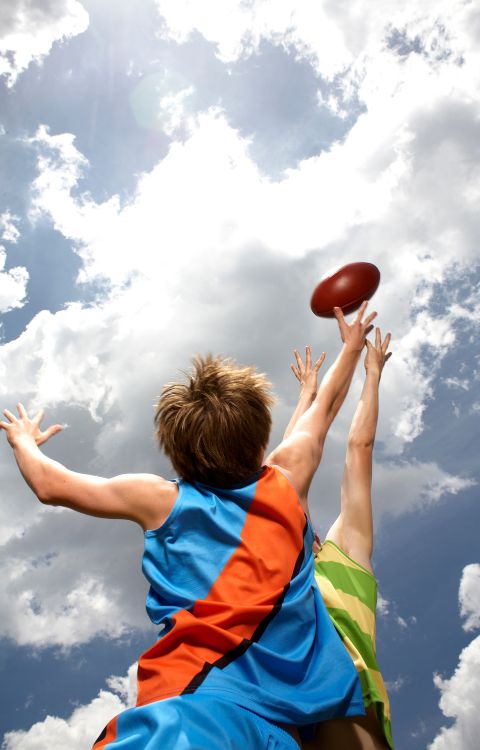Smart Concussion Erina And North Wyong
Welcome to Smart Concussion
Smart Concussion is proud to offer the Complete Concussions Program at our clinic.
As a certified Complete Concussions location we provide a full evidence-based concussion management program including everything from pre-season baseline testing to concussion treatment and rehabilitation, helping our patients and athletes safely return to learn, work and play.
Our Services
Baseline Concussion Testing
Treatment & Rehabilitation
Community Sports & Schools
High Performance Sports
Our Locations

concussion, reinvented
Get Back to Life with Smart Concussion
Are you or someone you care about struggling with the effects of a concussion?
We understand how confusing and overwhelming this experience can be. But there’s hope. At Smart Concussion, we specialise in providing relief and guiding you back to your favorite activities safely and quickly.
Our approach is comprehensive and personalised:
- Quick and Thorough Testing: We use evidence-based testing protocols to monitor your rehabilitation.
- Collaboration with Your Doctor: We keep your doctor in the loop to ensure coordinated care.
- Tailored Treatment: Every concussion is different, so we create a plan that’s just right for you.
- Regular Check-ups: We monitor your progress closely with regular tests.
- Step-by-Step Recovery: We’ll guide you through each phase of your recovery, ensuring you’re ready for the next step.
- Return to Fun Safely: We help you get back to school, work, or sport, making sure it’s safe.
- Celebrating Your Recovery: Once you’re better, we’ll celebrate your recovery and bid you farewell.
A concussion may be invisible, but its impact is real. It’s crucial to recognise symptoms early and seek treatment to avoid long-term issues. Our team is dedicated to providing the best care possible, using the latest methods and technologies.
Don’t ignore a concussion; reach out to us at Smart Concussion. Let’s take care of your brain together!
Frequenty Asked Questions
A concussion is a less severe brain injury resulting from a brief disruption in brain cell activity, triggered by a sudden movement of the brain inside the skull.
A concussion is a less severe brain injury resulting from a brief disruption in brain cell activity, triggered by a sudden movement of the brain inside the skull.
Initially, a concussion can overstimulate brain cells, followed by a substantial energy decline, leading to symptoms like:
- Unconsciousness (rare in over 90% of cases)
- Headaches or a sensation of pressure in the head
- Neck discomfort or signs of whiplash
- Dizziness or a spinning sensation
- Nausea or vomiting
- Vision problems, such as blurriness or distortion
- Issues with balance
- Exhaustion, sluggishness, sleepiness, or lack of energy
- Mental cloudiness or confusion
- A sense of abnormality or disorientation
- Emotional changes, including sadness or irritability
- Anxiety or agitation
- Light or noise sensitivity
- Concentration or memory challenges
- Sleep disturbances
Observable signs of a concussion might include:
- Being knocked out
- Not moving on the ground
- Confusion or slow responses
- A blank look
- Difficulty with balance or coordination
- Holding the head in distress
- Delayed response after a hit
Experiencing any of these symptoms after a significant hit suggests a high likelihood of a concussion.
If unsure, better to err on the side of caution.
While not entirely preventable, limiting physical contact in sports for younger participants can reduce concussion risks. Awareness and preparedness for impacts, along with techniques to brace for them, can mitigate the brain’s forceful movements. Helmets, although not foolproof against concussions, are crucial for preventing more severe head injuries.
It’s crucial to notify someone if there’s a suspicion of a concussion, whether it’s oneself, a team member, or even an opponent. The initial 24 to 48 hours post-injury are critical to monitor for symptoms indicating a more serious condition that needs urgent medical attention. Seek emergency care immediately if there are severe symptoms, such as excessive sleepiness, repeated vomiting, memory problems, seizures, worsening consciousness, or any unusual physical signs.
Concussions can be elusive, with symptoms sometimes delayed, and they often mimic other injuries like whiplash. Caution is key; if there’s a notable impact and any symptom, it’s best to halt activities and consult a healthcare provider skilled in managing concussions. Since concussions impact brain function and not its structure, scans like MRIs can’t always detect them. A thorough pre-injury evaluation can aid in accurate diagnosis and management.
While most recover within a week or so, some might experience prolonged symptoms, known as post-concussion syndrome. The reasons behind this extended recovery period are not fully understood but could involve persistent changes in brain blood flow, energy levels, or other physical and psychological factors. Factors like previous concussions, back-to-back injuries, existing mental health conditions, and stress can influence recovery durations.
Initial rest is advised, followed by a gradual reintroduction to mental and physical activities, tailored to individual responses. Persistent symptoms may require specific therapies like physical exercises, dietary adjustments, or rehabilitation for balance and vision issues.
A stepwise recovery plan is essential for safely returning to daily routines, including learning, working, or sports. This approach might involve starting with limited activities and progressively increasing intensity, always under medical supervision to avoid complications.
While concussions are considered mild brain injuries, they are not typically fatal. However, the early stages post-injury are crucial for monitoring to rule out more severe conditions. Repeat concussions before full recovery from an initial one can be particularly dangerous, known as Second Impact Syndrome.
Book An Appointment
Book a time to meet with a concussion specialist and we can help you on your journey to get back to normal again.
